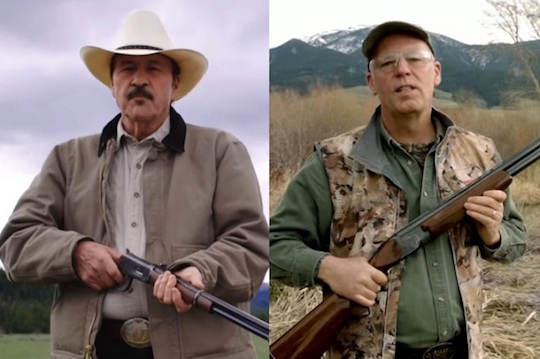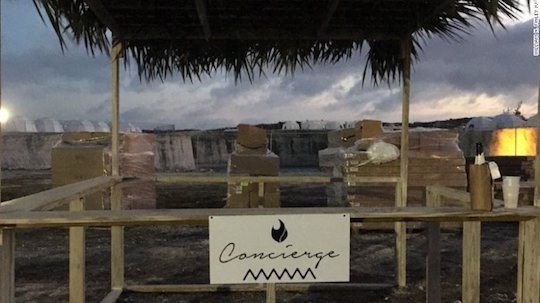In only three weeks, the voters of Montana will select a new congressman to replace former Rep. Ryan Zinke, who vacated his seat as our sole representative in the US House to become Donald Trump’s Secretary of the Interior. It’s an exciting race. Democrat Rob Quist, at left above, is a locally famous folk singer who has never held public office. Republican Greg Gianforte, at right, is a millionaire tech entrepreneur who ran for governor in 2016 but has also never held public office. Both men were chosen by their parties, rather than by the usual primary process, to run in the special election. But that doesn’t mean they aren’t real Montanans like me and, to a lesser extent, you. Why, just look at how they shoot guns!
That’s Greg Gianforte, wearing very clean work clothes and shooting a twelve-gauge at some office equipment in a field. Whoever did the voiceover for this one belongs in the Scary Ad Voice hall of fame. He says “national gun registry” in the scandalized tone most of us would reserve for “lobster in her vagina.” As you can see from this spot, candidate Gianforte loves guns and hates computers. That’s a sharp contrast with candidate Quist, who loves guns and hates Gianforte.
In the future, all political discourse will be conducted by shooting things that represent ideas. All candidates will be celebrities and tycoons with no record of public service, who are operated by their parties via remote control. What’s striking about these two ads is their near-total similarity. Creeping similarity has been a real problem in this contest between two supposedly different candidates for the House, which has amounted to a dance-off of affected pandering to a political consultant’s idea of Montana.
What if Montanans picked their leaders based on something other than who shoots a gun and lives on a ranch? What if the parties gave us to understand that our decisions could mean something besides “support Trump” or “stop Trump?” What if Montana politics were not, at this moment, captured entirely by cynics? These questions are academic. You can read all about them in this week’s column for the Missoula Independent. Now if you’ll excuse me, I have to find an object that represents exemptions for pre-existing conditions on the individual health insurance market and prop it up on a fencepost. We’ll be back tomorrow with Friday links.





